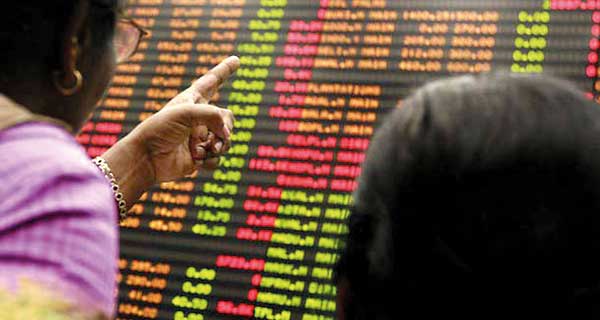Reply To:
Name - Reply Comment
Sri Lanka’s stock market, once a darling of investors, has seen its value plummet 26 per cent in the past year and now faces a crisis of confidence after its regulator quit in a storm of controversy.

The tiny bourse became the world’s top gainer soon after the country ended decades of ethnic war, but three years later, it has imploded amid allegations of corruption.
Market regulator Tilak Karunaratne quit on August 17, saying he could no longer battle against a “mafia of crooks” preventing probes into insider trading and “pump-and-dump” scams in which investors drive up shares and then sell them.
Allegations of corruption are not new at the $14.5 billion (Dh53.26 billion) exchange, but it is the first time the regulator had 17 high-profile cases of insider trading and other irregularities on his plate at the same time.
Karunaratne’s predecessor, Indrani Sugathadasa, also resigned last year, saying she was unwilling to compromise her “principles”.
The euphoria soon after troops crushed Tamil rebels in May 2009 sparked a bull run which has now been replaced by a search for scapegoats for the loss of over $5 billion in value at the Colombo Stock Exchange within six months.
The Colombo market’s slide has come on the back of impressive post-war growth. The economy expanded by more than 8 per cent for two years in a row and this year’s growth is expected to be 7.2 per cent.
Former foreign minister Mangala Samaraweera has accused the authorities of blocking independent regulators and undermining the credibility of Sri Lanka’s capital markets.
“The sad truth today is that the Colombo Stock Exchange has become the premier centre for money laundering east of the Suez canal,” Samaraweera, who is an opposition legislator, said.
The International Monetary Fund (IMF), which has extended a $2.6 billion bailout to Sri Lanka since the end of the island’s nearly four-decade Tamil separatist war, has raised concerns over the share market crisis.
“From all credible accounts, Karunaratne [as SEC chairman] and his team were taking exactly the right steps to ensure that stock market participants obey the rules,” IMF representative in Colombo, Koshy Mathai told AFP.
The government has not named a new regulator and is yet to formally comment on the crisis. However, Media Minister Keheliya Rambukwella said the government is considering tighter laws.
“There is a debate on this,” Rambukwella told reporters last week. “Different views have been expressed. We are ready to look at tighter laws if necessary.”
The IMF’s Mathai stressed that a firm set of regulations and an active regulator were necessary to instill confidence in foreign and domestic investors and demonstrate that the market was not designed for the benefit of a select few.
“This is an important issue for Sri Lanka as development of the capital markets is a key priority in ensuring the country’s continued rapid growth,” the IMF representative said.
No one has been jailed in Sri Lanka for securities fraud and previous cases of insider trading have been settled by the parties agreeing to pay small fines without accepting guilt.
A major player in Colombo, Sri Lankan-born financier Raj Rajaratnam is currently serving an 11-year US jail term for the biggest hedge fund insider trading case in US history.
His market activities ended with his arrest in October 2009 and his Galleon Management Fund pulled out of Sri Lanka and was eventually wound up, but he never faced any allegations of wrongdoing in Colombo.
AFP